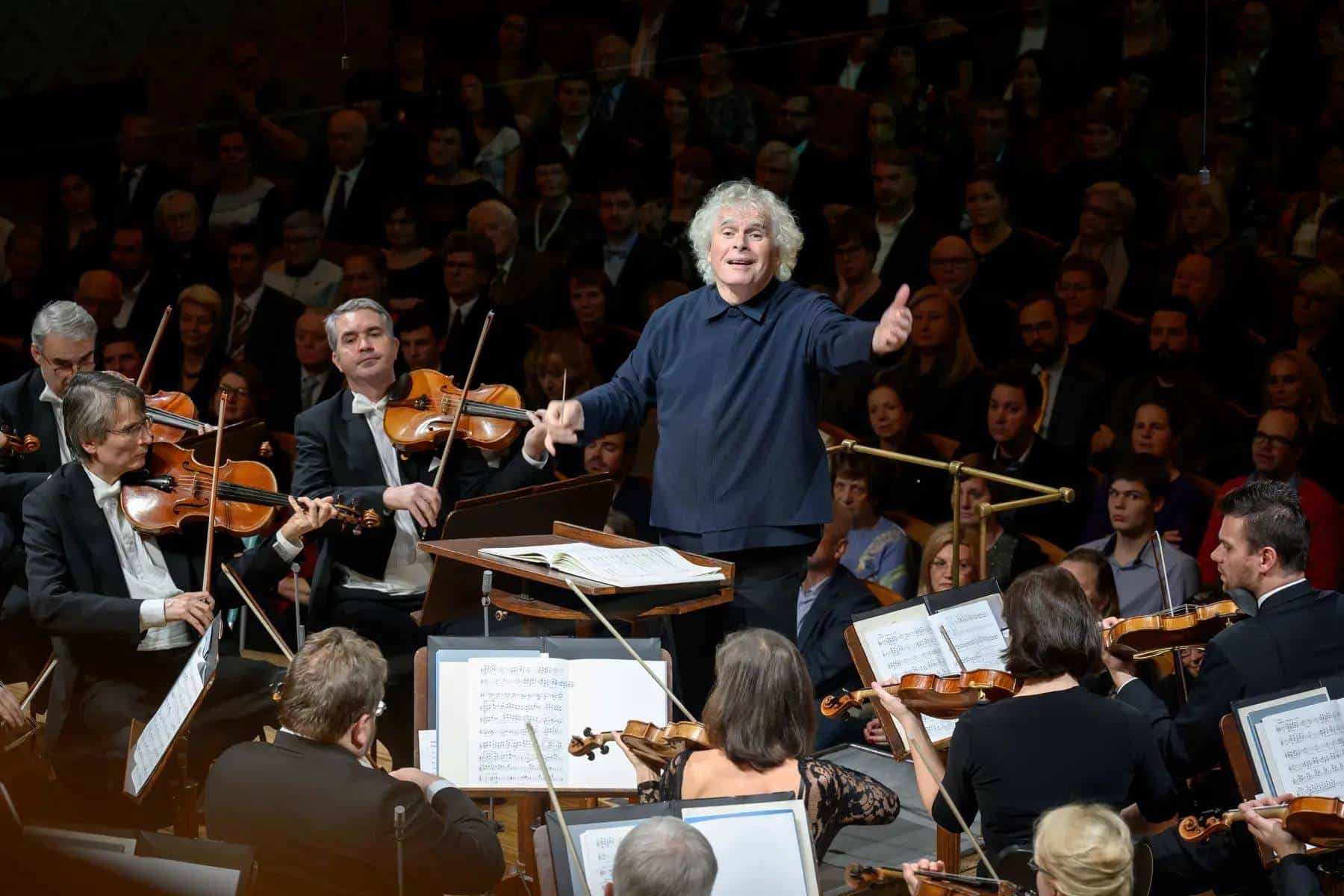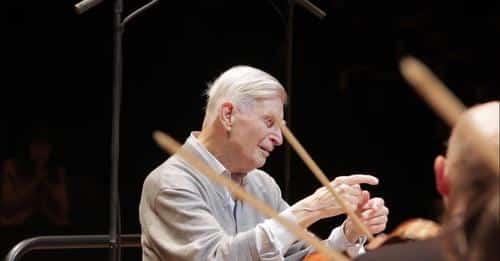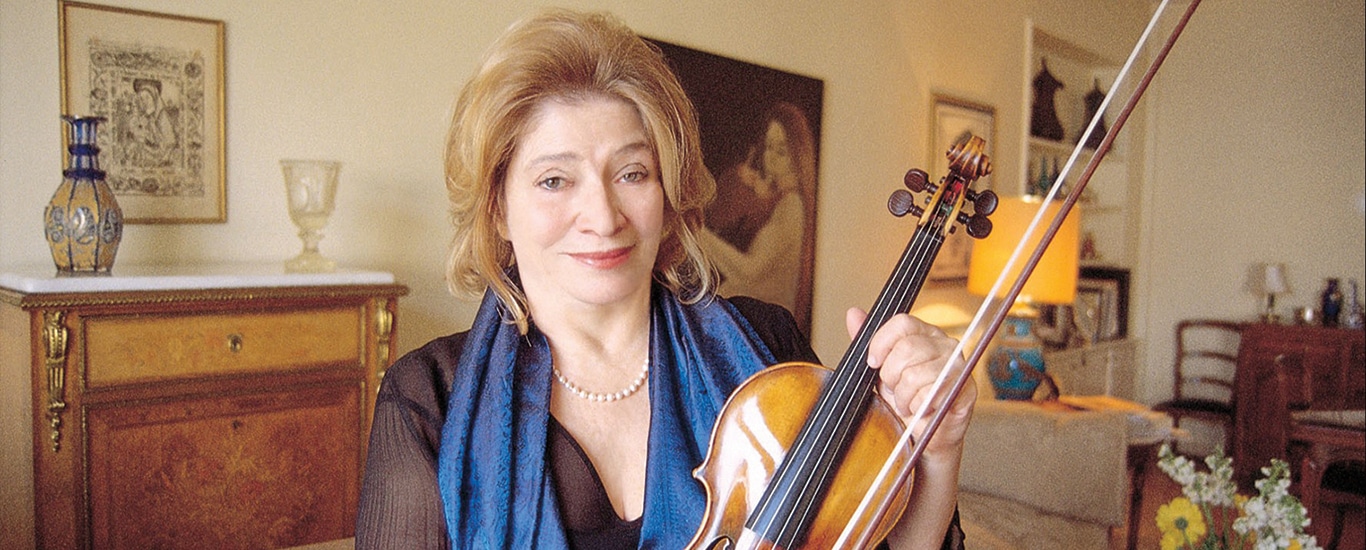Simon Rattle talks to new Czech mates
OrchestrasThe conductor explains on Czech Radio why he has joined the Philharmonic as principal guest:
What were your motivations in accepting the invitation to become principal guest conductor with the Czech Philharmonic?
SR: “Oh, it was pure pleasure. I fell in love with the orchestra the first time I came to conduct. Of course I had known them for years, but if you’re conducting it’s a different thing.
“I just thought, Look, this is a relationship I would like to keep – I would like not to be just an occasional guest; I’d like to be a bit part of this institution.
“And of course it is one of the greatest orchestras in the world – I hope everybody in this country knows that.
“So it’s selfish. I love the orchestra and I want to keep on making music with them.”
What were your first encounters with this institution, as you call it?
SR “I was a fan from since I was a child. So it was from buying [Czechoslovak label] Supraphon recordings and hearing this very unusual, special sound of the orchestra: brightly coloured, very alert and alive, lots of personality and point.
“So this was something I always had in my brain; I never imagined that later in life I would become part of the family.”
You had the words “Rafael Kubelík Chair” added to your title. Why did you make that request?
SR: “Oh, I didn’t make the request in the slightest. This came from the orchestra. Because I followed Rafael Kubelík around as a young musician, and in a way he changed my life – hearing him work.
“And for me it’s deeply touching, because he is such a part of why I am a musician and how I am a musician.
“And because also of the way he treated people; that there was a very menschlich feeling.
“Of course now I conduct his old orchestra, in Munich. And you feel his spirit on the walls; that actually it is a place where people treat each other with love and respect. And this comes from him.”
SR: Did you meet Kubelík in your youth?
“I never had the courage to go to say hello. Which was really stupid, but what would I have said? I don’t know [laughs].”
What are you most looking forward to about the collaboration with the Czech Philharmonic?
SR: “We have a very good time together. It’s very warm, they’re very funny people. And it feels as though there is not a ceiling on what’s allowed. So I think we will explore, and have a good time.
“There’s a very special sound in this beautiful hall [the Rudolfinum’s Dvořák Hall], and the orchestra has learned how to use that sound and make it.
“Because it’s not easy. It’s much smaller than most concert halls, but yet it has the sound of a particular magic – and they know how to harness that magic.”
Of course you have a Czech wife, [opera star] Magdalena Kožená. How much time do you spend here in Prague?
SR: “I think over the years we have spent quite a lot, and we will spend more. I’ve obviously spent quite a lot of time in Brno, which is where she is from. But also exploring the countryside.
“So I think we’ll be more and more in this country.”
SR: During your news conference you referred to Czech humour. How do you as an Englishman find Czech humour?
“It’s very black, very dark. Wonderful but wicked.
“And you can say things here that you might find risky in the rest of the world.
“The edge I find wonderful. I have the feeling that the Czechs like the English, the worse things are, the more likely they are to laugh.
“And I think this we share.”
Photo: Petra Hajská/Czech Philharmonic Orchestra






Shows him up for who he is
What on earth does that mean?
Exactly.
“Interviewer: You had the words “Rafael Kubelík Chair” added to your title. Why did you make that request?
SR: “Oh, I didn’t make the request in the slightest. This came from the orchestra.”
Sure.
So a new big concert hall for Prague?
I assume this is a snide reference to efforts in London and Munich, but ther is one in the planning. The Vltavske Filharmonie, due to open in 2023.
Already under way. Vltava Philharmonie.
The Czech Phil sound today is not the Czech Phil sound of the 1950s, 60s, 70s and 80s. It has softened dramatically and now sounds more like, let’s say the BBC Symphony Orchestra.
Rattle is only good in certain pieces, he did a brilliant Roy Harris 3rd Symphony with the CBSO and bizarrely never performed it again.
All conductors are only good in certain pieces. All of the “big” name conductors, and those with the most prominent orchestras, are overrated to some degree. This applies to the “great” conductors of history as well, in concert and on commercial recordings.
Rafael Kubelik was perhaps the most consistently good conductor of the post-World War Two era, in concert and on commercially-released recordings. Simon Rattle is not on track to match him.
He’s doing the Roy Harris 3rd Symphony with the LSO next month.
Isn’t it too much ado about just two programs per year? Doesn’t he and other conductors in the top rank spend this time with other orchestras without being Principal Guest and even Rafael Kubelik Chair? Shouldn’t it be many more weeks when such title is given or am I too old school?
Another great orchestra dragged down to mediocrity by Rattle.